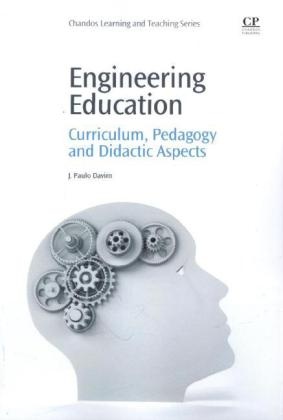Read more
Informationen zum Autor J. Paulo Davim received his PhD degree in Mechanical Engineering from the University of Porto in 1997 and the Aggregate title from the University of Coimbra in 2005. Currently! he is an Professor at the Department of Mechanical Engineering of the University of Aveiro. He has more 25 years of teaching and research experience in manufacturing! materials and mechanical engineering with special emphasis in machining and tribology. Recently! he has also interest in sustainable manufacturing and industrial engineering. He is the Editor-in-Chief of six international journals! guest editor of journals! books editor! book series editor and scientific advisory for many international journals and conferences. Presently! he is an editorial board member of 25 international journals and acts as reviewer for than 70 prestigious ISI Web of Science journals. In addition! he has also published in his field of research as author and co-author more than 50 book chapters and 350 articles in journals and conferences (more 190 articles in ISI Web of Science! h-index 30+). Klappentext Information about engineering education is highly relevant for improving communication between professors, researchers and students in engineering schools, institutions, laboratories and industry. Technological change is fundamental to the development of education systems. Engineering Education emphasises curriculum development, pedagogy and didactic aspects of engineering education, covering relevant aspects from more classical engineering courses such as mechanical, manufacturing, industrial, chemical, environmental, civil and systems courses, to more contemporary courses including nano-engineering and bioengineering along with information on sustainable development in the context of engineering education. Zusammenfassung This book emphasises curriculum development, pedagogy and didactic aspects of engineering education, covering relevant aspects from more classical engineering courses such as mechanical, manufacturing, industrial, chemical, environmental, civil and systems courses, to more contemporary courses including nano-engineering and bioengineering. Inhaltsverzeichnis Bolonha process; Case studies from universities/schools in different countries; Continuing education; Curriculum development; Educational multimedia in recent developments; Erasmus programme; Ethics in teaching and research; Globalization and education; Human resources in education; Impact of educational research; Information and computer technologies; Innovation in education through university/industry collaboration; Innovative teaching and learning technology; Pedagogical aspects of engineering teachers; Pedagogical resources of universities /schools; Performance indicators; Quality assurance and accreditation; Strategies of innovation in education; Sustainable development; Teaching competencies and qualification; Teaching developments in new subjects. ...
List of contents
- List of figures and tables
- Preface
- About the editor and contributors
- Chapter 1
- Chapter 2
- Chapter 3
- Chapter 4
- Chapter 5
- Chapter 6
- 1: The influences of personality traits on academic performance through imaginative capability: the differences between engineering and science
- Abstract
- Introduction
- Engineering and science
- Engineering imagination and scientific imagination
- The effects of personality traits on imagination
- Method
- Results
- Discussion
- Conclusion
- Acknowledgements
- 2: Developing a personalized and adapted curriculum for engineering education through an ambient intelligence environment
- Abstract
- Introduction
- Ambient intelligence environments
- Brain dominance and thinking styles
- Research model
- Prototype design
- Results, interpretation, and recommendations
- Research model validation
- Conclusion
- 3: Evaluation to support stakeholder-centered design and continuous quality improvement in higher education services
- Abstract
- Introduction
- Evaluation and self-evaluation in the Italian higher education context
- The conceptual approach to evaluating education service performance
- Fuzzy ServQual-based methodology for reliable service evaluation
- Evaluation of Palermo Management Engineering Program education services
- Conclusion
- Appendix
- 4: Software engineering education: from dysfunction to core competency
- Abstract
- Introduction
- Phase I: Addressing the talent shortage problem
- Phase II: improving software engineering core competency
- Conclusion
- Acknowledgment
- 5: The most central occupation requirements for engineering jobs: engineering education implications
- Abstract
- Introduction
- The O*NET database
- Methodological approach and results
- Conclusion
- 6: Energy engineering: an emerging discipline
- Abstract
- Introduction
- The need for energy engineering courses
- The development of undergraduate courses
- The development of postgraduate courses
- Assessment and practical work in academic courses
- Perspectives for energy engineering courses and their graduates
- Conclusion
- Index

